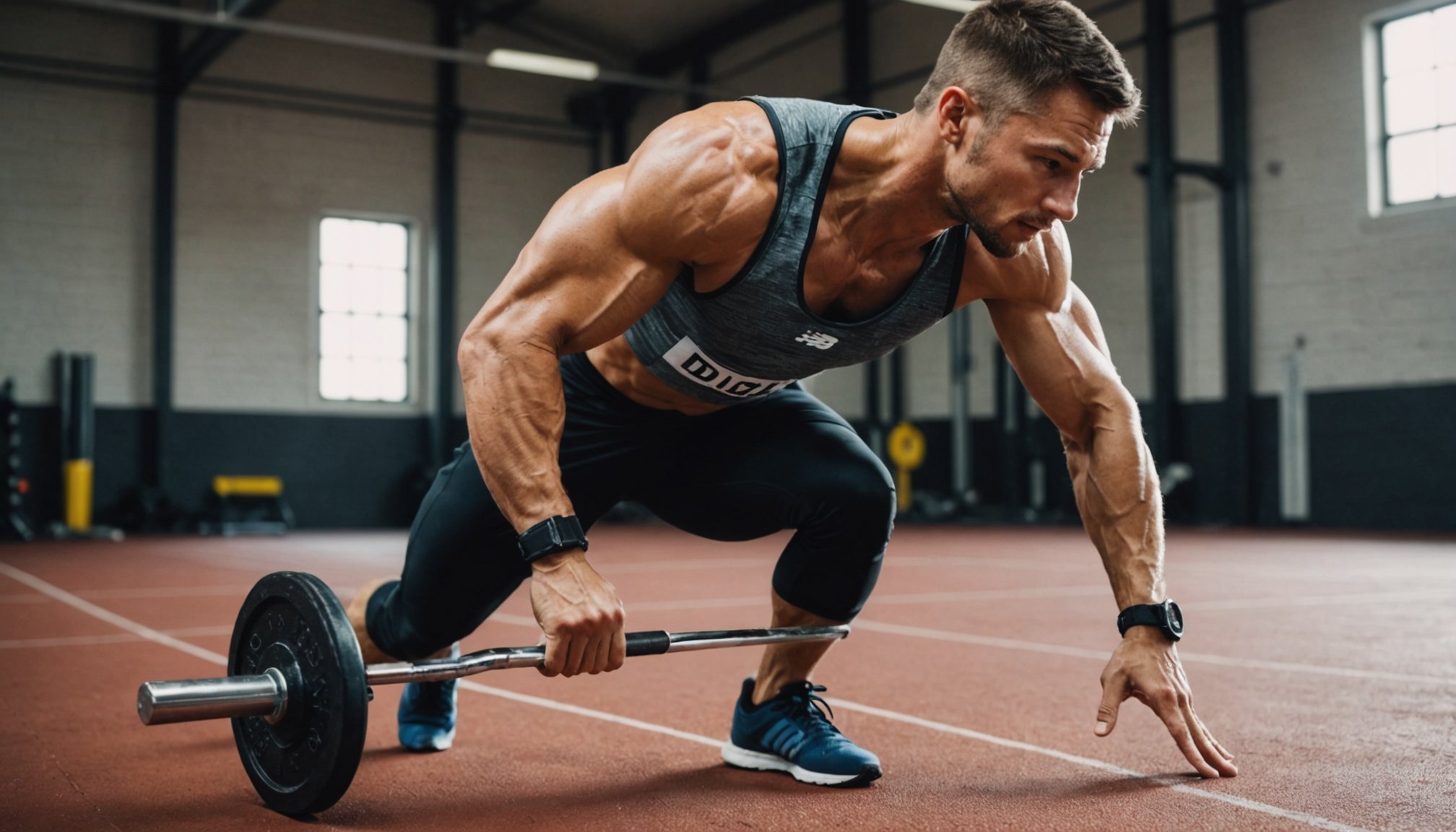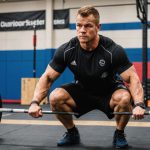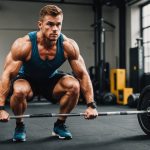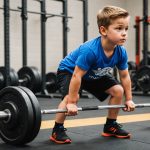Overview of Vitamin D and Muscle Performance
Understanding the vast benefits of Vitamin D is crucial, especially in relation to muscle performance. Vitamin D plays a significant biological role in muscle function. It helps in the absorption of calcium and phosphate, two essentials for muscle contraction. When athletes have optimal Vitamin D levels, their muscles are well-nourished, leading to improved strength and performance.
Studies have established a clear relationship between Vitamin D levels and athletic performance. Athletes with sufficient Vitamin D often exhibit enhanced muscle strength, power, and recovery. In contrast, a deficiency might result in muscle weakness or increased risk of injuries. Thus, maintaining adequate Vitamin D can be a potent factor for athletes aiming for peak performance.
Also to discover : Essential Tips for a Safe Comeback to Weightlifting After a Muscle Injury
Indoor athletes are particularly susceptible to Vitamin D deficiency. Due to limited sun exposure, they often don’t acquire enough Vitamin D naturally. Research indicates that by increasing their Vitamin D levels through diet or supplements, indoor athletes could potentially enhance their muscle performance and reduce injury risks.
Continued studies on this topic highlight the necessity of Vitamin D for athletes, making it an area of interest for sports nutritionists and trainers aiming to optimize athletic capability.
Also to read : Essential Stretching Exercises to Enhance Your Olympic Weightlifting Performance
Scientific Evidence on Vitamin D Supplementation
The role of Vitamin D Supplementation in enhancing Athletic Performance has been a topic of keen interest among researchers. Evidence suggests that sufficient levels of this nutrient are crucial, particularly for those who engage in high-intensity or indoor sports. While various Research Studies reinforce its benefits, there exists some variation in outcomes depending on study design and population.
Key Studies on Vitamin D and Muscle Strength
Research Studies have repeatedly highlighted a positive relationship between Vitamin D Supplementation and muscle strength. Key findings indicate that athletes with optimal vitamin D levels exhibit enhanced muscle function compared to those deficient in this vitamin. The dosage and effects vary, with higher doses sometimes leading to better outcomes.
Meta-Analyses of Vitamin D Efficacy
Several meta-analyses have aggregated data from various studies to provide a broader picture of the efficacy of Vitamin D. These analyses confirm that supplementation improves muscular performance, though the magnitude of improvement can depend on baseline vitamin D levels, dosage, and individual responses.
Case Studies Involving Indoor Athletes
Case studies involving indoor athletes shed light on the importance of Vitamin D in non-exposed environments. These studies emphasize adequate supplementation for enhanced muscular strength. Longitudinal studies have further shown ongoing benefits and adjustments necessary over time for indoor athletes due to limited sun exposure.
Mechanisms Behind Vitamin D’s Impact on Muscle
Vitamin D is a vital nutrient that plays multiple roles in maintaining muscle health and enhancing athletic performance. One of the primary mechanisms is its influence on muscle protein synthesis. Vitamin D interacts with muscle cells to promote protein creation, which is essential for muscle growth and repair. This interaction enhances muscle strength and recovery, ultimately benefiting athletes and those engaged in physical activities.
Additionally, Vitamin D is crucial for calcium regulation, a key element in muscle contraction. Calcium ions are necessary for initiating muscle contraction, and Vitamin D ensures efficient absorption and utilization of calcium, making muscle movements more effective and reducing the risk of cramps and spasms.
Vitamin D also affects performance by interacting with other hormones like testosterone. This hormone plays an important role in muscle growth and energy levels. Adequate levels of Vitamin D can support hormonal balance, thereby enhancing athletic performance. Ensuring optimal Vitamin D levels can lead to improved muscle function and endurance.
In essence, Vitamin D acts as a supporting player in a complex system that maintains muscle health. Its interactions with proteins, calcium, and hormones highlight its comprehensive role in athletic performance.
Recommended Dosages and Sources of Vitamin D
Understanding the right Vitamin D intake and where to obtain it is crucial, especially for indoor athletes who may have limited exposure to sunlight.
Daily Recommended Intake for Athletes
For athletes, specifically those training indoors, it is essential to follow the recommended dosages of Vitamin D to maintain optimal health. The recommended daily intake can vary based on individual needs, but an average adult should aim for 600 to 800 IU per day. This ensures proper bone health and performance enhancement. Indoor athletes might need a bit more due to limited natural sunlight exposure.
Natural Sources of Vitamin D
Vitamin D sources can be both dietary and supplemental. Foods like fatty fish, cheese, and egg yolks provide natural Vitamin D. Fortified foods, such as milk and cereals, also contribute to daily requirements. These natural sources should be included in an athlete’s diet to ensure they receive adequate nutrients.
Role of Supplements vs. Sunlight Exposure
Balancing the benefits of supplements and sunlight is important. While sunlight is a natural source, its effectiveness depends on geographic location and skin exposure time. Supplements offer a controlled, reliable source of Vitamin D, aiding those with limited sunlight access. Finding the right balance involves assessing individual lifestyle and dietary habits.
Benefits of Vitamin D for Indoor Athletes
Vitamin D is beneficial for indoor athletes due to enhanced muscle recovery and its role in preventing injuries. Engaging in indoor athletics can often mean limited exposure to sunlight, which is a primary source of Vitamin D. This vitamin is crucial in maintaining muscle function and repair, thus aiding athletes in bouncing back from rigorous workouts more swiftly.
Indoor athletes can also see improvements in endurance and strength metrics with adequate Vitamin D levels. The nutrient helps in muscle fibre recruitment and energy utilization, which are critical components of athletic performance. An optimized intake supports better endurance, allowing athletes to sustain activity over extended periods without undue fatigue.
Beyond physical benefits, Vitamin D promotes psychological well-being, which is often overlooked. Regular and sufficient doses are linked to improved mood and stress management, acting as a buffer against the psychological pressures faced by athletes. This holistic approach not only enhances performance but also harmonizes mental health with overall physical health, making it an indispensable aspect of their regimen.
Overall, Vitamin D proves to be a versatile ally for those engaging in indoor sports, marrying physical prowess with mental resilience effectively.
Potential Side Effects and Contraindications
Understanding the potential side effects and contraindications of Vitamin D supplements is crucial for those considering their use.
Risks of Excessive Supplementation
Excessive intake of Vitamin D supplements can lead to a condition known as hypercalcemia, where too much calcium builds up in the blood. Symptoms may include nausea, vomiting, weakness, and kidney complications. It is essential to note that these side effects typically occur only when consuming high doses over extended periods. Always adhere to recommended dosages and consult a healthcare provider if unsure.
Individuals at Higher Risk for Vitamin D Deficiency
Certain groups are more susceptible to Vitamin D deficiency. These include older adults, individuals with darker skin tones, and those with limited sun exposure. People with specific medical conditions, such as chronic kidney disease or malabsorption problems, also fall into this category. Addressing these deficiencies often requires tailored Vitamin D supplementation under medical guidance.
Recommendations for Safe Supplementation
For safe usage, consider these recommendations:
- Consult a healthcare professional before starting any Vitamin D supplement regime.
- Regular monitoring of blood levels to ensure appropriate dosage.
- Be especially cautious if you belong to a high-risk group or have pre-existing health conditions.
Practical Tips for Indoor Athletes
Engaging in indoor sports like swimming or treadmill running often means limited sunlight exposure, leading to a need for heightened awareness regarding Vitamin D consumption.
Indoor athletes should regularly monitor their Vitamin D levels to stay on top of their health game. Simple blood tests can effectively measure levels and identify deficiencies. If you notice symptoms like fatigue or muscle pain, it could be time to check your Vitamin D status.
Incorporating Vitamin D-rich foods into your diet is a natural and proactive approach. Foods such as fatty fish, like salmon and mackerel, fortified milk, and cereals, along with egg yolks, can significantly contribute to maintaining optimal levels. Diversifying your diet with these items can make a substantial difference in your overall well-being.
It’s crucial to understand when to seek professional advice about supplementation. If dietary changes aren’t enough to maintain satisfactory Vitamin D levels, a healthcare provider can guide you through safe supplementation options. Consulting a medical professional ensures personalised advice tailored to your individual needs and health profile. By being informed and proactive, indoor athletes can enjoy their sport without compromising their health.











